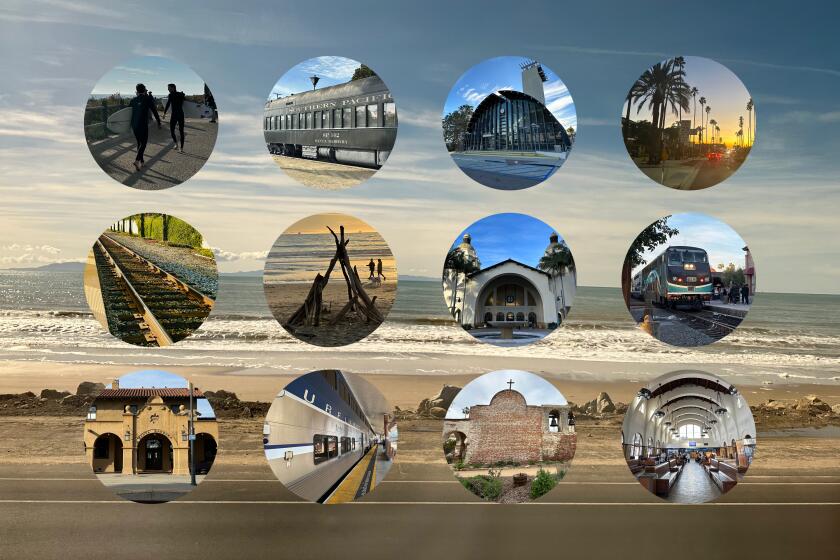Return of the business trip
If you’re a business traveler, you may have noticed that your bosses have started to loosen their grip on the travel budget.
Reports and surveys released last week said the corporate world is willing to spend more on travel. But the reports also show that business owners are still not spending like they did before the recession.
The International Air Transport Assn., the trade group for airlines worldwide, released statistics that showed passenger traffic on first- and business-class seats was up 13.8% in July from the same month last year.
Meanwhile, about 63% of the travel firm owners, managers and agents who were surveyed said business travel bookings for airline seats and hotel rooms were up as of Aug. 30 compared with a year earlier, according to the Travel Leaders Group, a Minneapolis travel company.
That’s good news for the struggling airline and hotel industries, which make a bulk of their revenue from the business traveler. The bad news is that the rate of business travel remains below pre-recession levels.
Nearly 61% of the travel managers and agents surveyed said travel bookings were either the same or below the rate of 2008. Statistics from the airline trade group showed the number of passengers flying in premium-class seats — typically occupied by business travelers — were still 8% below pre-recession levels.
A travel forecast by Egencia, the corporate travel arm of Expedia Inc., reached a similar conclusion.
“Corporations are traveling again this year, though still below 2008 levels,” said Rob Greyber, president of Egencia.
• Another layer of airport security
If your travels take you overseas, you may now find yourself undergoing security screening even after you have cleared the security gate.
Smiths Detection, a New Jersey technology firm, announced last week that it sold more than 50 portable trace detection units to several airlines that fly into and out of the U.S.
Security agents, carrying the new 10-pound devices, can test swabs rubbed on the hands, luggage and clothing of passengers for explosives and narcotics. Older versions of the device are the size of a desktop computer, requiring passengers to line up by the machine to be tested.
Smiths’ vice president for homeland security, Mark Laustra, said the new units are part of increased security measures to further test passengers after they have cleared the initial security gate.
The units are being used primarily at airports in Africa and the Middle East for passengers flying into the U.S., he said, adding that the company hopes to sell more of the devices. “It’s less intrusive and faster.”
• Electric rental cars move forward
Three months before Enterprise Rent-A-Car plans to start offering all-electric cars in Los Angeles and other cities, the company has settled a key issue: Renters do not have to return the cars with fully charged batteries.
Enterprise received its first Nissan Leaf last week to use as a test model and announced it would receive the first of 500 electric cars in December to begin offering them in Los Angeles; San Diego; San Francisco; Phoenix; Portland, Ore.; Seattle; and Nashville.
Lee Broughton, Enterprise’s corporate director of sustainability, said renters wouldn’t be penalized for returning the electric cars with depleted batteries. That would require the company to set aside time to recharge the cars before offering them to other customers.
Hertz, which also plans to offer the Leaf at a handful of locations next year, has yet to make the decision on returned cars with drained batteries.
Recharging a battery can take about 30 minutes from a 480-volt quick-charging station but up to 20 hours from a standard home outlet.
“There will be some downtime,” Broughton said of the electric cars. That downtime many mean Enterprise couldn’t rent the cars out as often and could increase the rental price. Enterprise has yet to set rental rates for the electric car.
hugo.martin@latimes.com
Sign up for The Wild
We’ll help you find the best places to hike, bike and run, as well as the perfect silent spots for meditation and yoga.
You may occasionally receive promotional content from the Los Angeles Times.



